|
Books Should Be Free Loyal Books Free Public Domain Audiobooks & eBook Downloads |
|
|
Books Should Be Free Loyal Books Free Public Domain Audiobooks & eBook Downloads |
|
Top Authors |
|---|
|
Book type:
Sort by:
|
By: Harold MacGrath (1871-1932) | |
|---|---|
 A Splendid Hazard
A Splendid Hazard
| |
 The Place of Honeymoons
The Place of Honeymoons
| |
By: Horace Walpole | |
|---|---|
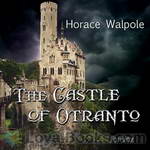 The Castle of Otranto
The Castle of Otranto
The Castle of Otranto is a 1764 novel by HoraceWalpole. It is generally held to be the first gothic novel,initiating a literary genre which would become extremelypopular in the later 18th century and early 19thcentury. Thus, Castle, and Walpole by extension isarguably the forerunner to such authors as AnnRadcliffe, Bram Stoker, Daphne du Maurier, andStephen King. | |
 Shorter Novels, Eighteenth Century The History of Rasselas, Prince of Abyssinia; The Castle of Otranto, a Gothic Story; Vathek, an Arabian Tale
Shorter Novels, Eighteenth Century The History of Rasselas, Prince of Abyssinia; The Castle of Otranto, a Gothic Story; Vathek, an Arabian Tale
| |
 The Letters of Horace Walpole, Earl of Orford — Volume 1
The Letters of Horace Walpole, Earl of Orford — Volume 1
| |
 Letters of Horace Walpole — Volume I
Letters of Horace Walpole — Volume I
| |
 Historic Doubts on the Life and Reign of King Richard the Third
Historic Doubts on the Life and Reign of King Richard the Third
| |
 Letters of Horace Walpole — Volume II
Letters of Horace Walpole — Volume II
| |
By: Roy J. Snell (1878-1959) | |
|---|---|
 The Blue Envelope
The Blue Envelope
A mystery and adventure story for girls set in Alaska. | |
By: Warner Van Lorne | |
|---|---|
 Wanted – 7 Fearless Engineers!
Wanted – 7 Fearless Engineers!
A great civilization’s fate lay in Dick Barrow’s hands as he led his courageous fellow engineers into a strange and unknown land. None of them knew what lay ahead–what dangers awaited them–or what rewards. But they did not hesitate because the first question asked them had been: “Are you a brave man?” | |
By: St. Teresa of Avila (1515-1582) | |
|---|---|
 The Interior Castle
The Interior Castle
El Castillo Interior or Las Moradas (trans.:The Interior Castle or The Mansions) was written by Saint Teresa of Ávila in 1577. After being ordered to write her autobiographical La Vida de la Santa Madre Teresa de Jesús (The Life of S. Teresa of Jesus), Teresa was hesitant to begin writing again on her views of the perfection found in internal prayer. In the hands of the Inquisition at that time, her Life was commonly believed to be the weight in the scale of whether to call her experiences heretical or not... | |
 Book of the Foundations
Book of the Foundations
Essentially the sequel to The Life of St. Teresa, Teresa recounts the foundations of the Discalced Carmelite monasteries in Spain, both for men and women. This book tells of all the triumphs and troubles, and about the many people who helped her.(Introduction by Ann Boulais) | |
By: Marie Belloc Lowndes (1868-1947) | |
|---|---|
 The Lodger
The Lodger
The Lodger by Marie Belloc Lowndes was inspired by the Jack the Ripper murders. An older couple, the Buntings, are forced to take in lodgers to make ends meet. They are on the verge of starvation when a mysterious man, Mr. Sleuth, appears at their door and asks for lodging, paying in advance. However, when the murders of young women in London attributed to a man known only as “The Avenger” continue, the Buntings, particularly Mrs. Bunting, grow fearful that their lodger may be the murderer. | |
 The End of Her Honeymoon
The End of Her Honeymoon
| |
 The Chink in the Armour
The Chink in the Armour
| |
 From out the Vasty Deep
From out the Vasty Deep
| |
 The Red Cross Barge
The Red Cross Barge
| |
 Good Old Anna
Good Old Anna
| |
 What Timmy Did
What Timmy Did
| |
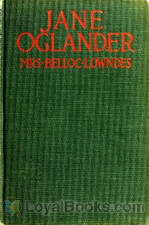 Jane Oglander
Jane Oglander
| |
 The Uttermost Farthing
The Uttermost Farthing
| |
 Love and hatred
Love and hatred
| |
By: James Frazer (1854-1941) | |
|---|---|
 The Golden Bough
The Golden Bough
The Golden Bough: A Study in Magic and Religion is a wide-ranging comparative study of mythology and religion, written by Scottish anthropologist Sir James George Frazer (1854–1941). It offered a modernist approach, discussing religion dispassionately as a cultural phenomenon, rather than from a theological perspective. Although most of its theories have subsequently been exploded (the most famous one being that of the relationship between magic, religion and science), its impact on contemporaneous European literature was substantial... | |
By: Robert Burton (1577-1640) | |
|---|---|
 The Anatomy of Melancholy
The Anatomy of Melancholy
The Anatomy of Melancholy is a book by Robert Burton, first published in 1621. On its surface, the book is a medical textbook in which Burton applies his large and varied learning in the scholastic manner to the subject of melancholia (which includes what is now termed clinical depression). Though presented as a medical text, The Anatomy of Melancholy is as much a sui generis work of literature as it is a scientific or philosophical text, and Burton addresses far more than his stated subject. In... | |
By: Siegfried Sassoon (1886-1967) | |
|---|---|
 Counter-Attack and Other Poems
Counter-Attack and Other Poems
| |
By: Earl Derr Biggers (1884-1933) | |
|---|---|
 The Agony Column
The Agony Column
English romantic adventure starring a young American in London and inspired by the personal ads (agony columns) in the London papers. In this treacherous tale of murder and intrigue young American Geoffrey West tracks a killer from the posh dining room of the Carlton Hotel to the opium dens of London’s Limehouse district in search of the truth and the heart of his true love only to find the culprit all too close to home. Earl Derr Biggers is better known as the author of numerous Charlie Chan novels. The Agony Column was released as a movie under the name Second Floor Mystery in 1930. While this movie was in production, its two stars, Loretta Young and Grant Withers, eloped. | |
By: Earl Derr Biggers (1884-1933) | |
|---|---|
 Seven Keys to Baldpate
Seven Keys to Baldpate
Dime-store novelist William Magee has gone to Baldpate Inn to do a little soul-searching in an attempt to write a serious work. Thinking he will be alone and uninterrupted, Magee arrives at the inn in the dead of winter. But he discovers that there are six other keys to Baldpate Inn, and the holders of those keys enliven his stay with bribery, shootings and plenty of mystery. | |
By: Blaise Pascal | |
|---|---|
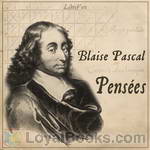 Pensées
Pensées
Pascal’s Pensées is widely considered to be a masterpiece, and a landmark in French prose. When commenting on one particular section (Thought #72), Sainte-Beuve praised it as the finest pages in the French language. Will Durant, in his 11-volume, comprehensive The Story of Civilization series, hailed it as “the most eloquent book in French prose.” In Pensées, Pascal surveys several philosophical paradoxes: infinity and nothing, faith and reason, soul and matter, death and life, meaning and vanity—seemingly arriving at no definitive conclusions besides humility, ignorance, and grace. Rolling these into one he develops Pascal’s Wager. | |
 Pascal's Pensées
Pascal's Pensées
| |
By: H. Rider Haggard (1856-1925) | |
|---|---|
 Lysbeth, a Tale of the Dutch
Lysbeth, a Tale of the Dutch
This is a great book if you're looking for an adventure filled novel. It takes place during the Spanish Inquisition and describes some of the horrors that happened giving you an idea of what it was really like to live during that time period. Follow Lysbeth, a young Hollander girl, as she struggles through life enduring times of hardship and peace, sorrow and happiness, war and love. (Introduction by Abigail Rasmussen) | |
 The Brethren
The Brethren
Set in the days of the Crusaders, this books tells of a young maiden named Rosamund, and her twin cousins. Godwin is the grey eyed thoughtful man, and Wulf is the blue eyed warrior. They are both knights of England and they are both in love with their fair cousin. But the riddle of the story is which does Rosamund love?The adventure begins when Rosamund is taken from England and carried to the East. The plot thickens as the two young knights follow her in hopes of rescuing her from the Muslim leader, Saladin... | |
 People of the Mist
People of the Mist
Penniless Leonard Outram attempts to redress the undeserved loss of his family estates and fiancee by seeking his fortune in Africa. In the course of his adventures he and his Zulu companion Otter save a young Portuguese woman, Juanna Rodd, together with her nursemaid Soa, from slavery. Leonard and Juanna are plainly attracted to each other, but prone to bickering, and their romance is impeded by the watchful and jealous Soa. The protagonists seek the legendary People of the Mist, said to possess a fabulous hoard of jewels... | |
By: Henry Rider Haggard (1856-1925) | |
|---|---|
 Hunter Quatermain's Story
Hunter Quatermain's Story
| |
By: H. Rider Haggard (1856-1925) | |
|---|---|
 Marie: An Episode in the Life of the Late Allan Quatermain
Marie: An Episode in the Life of the Late Allan Quatermain
This is a superb sweeping romantic adventure story of how Alan Quatermain, hero of fourteen of Rider H Haggard's books, met, fell in love with and married his first wife. It is related from the perspective of old age and is set against the time of the Great Trek in the 1830s. The villains of the piece are truly villainous, Dingaan a portly traitorous despotic Zulu chief, and a Portuguese killer who constantly plots to kill our hero and steal his wife.This book is written with histrionic flair typical of the Victorian era, gripping battles combined with scenes of fervent emotion... | |
By: H. Rider Haggard (1856-1925) | |
|---|---|
 Beatrice
Beatrice
Beatrice is a lonely twenty-two year old woman. After saving Geoffrey's life, they fall in love. However, Geoffrey is married. In addition, a local rich land owner wants to marry the beautiful Beatrice. This is a romance by the author of King Solomon's Mines, Allen Quatermain, and She." | |
By: Theodore Arnold Haultain (1857-1941) | |
|---|---|
 Hints for Lovers
Hints for Lovers
“Hints for Lovers” is a thorough analysis of relationships between men and women, about everything that lovers should know, and delves deep into the psychology of men and women, and the philosophy of courtship, engagement, kissing, making love, marriage, etc, in a light-hearted tone, with refreshing humor. | |
By: Inazo Nitobe (1862-1933) | |
|---|---|
 Bushido: The Soul of Japan
Bushido: The Soul of Japan
Bushido: The Soul of Japan written by Inazo Nitobe was one of the first books on samurai ethics that was originally written in English for a Western audience, and has been subsequently translated into many other languages (also Japanese). Nitobe found in Bushido, the Way of the Warrior, the sources of the virtues most admired by his people: rectitude, courage, benevolence, politeness, sincerity, honor, loyalty and self-control, and he uses his deep knowledge of Western culture to draw comparisons with Medieval Chivalry, Philosophy, and Christianity. | |
By: Ludwig Wittgenstein (1889-1951) | |
|---|---|
 Tractatus Logico-Philosophicus
Tractatus Logico-Philosophicus
Tractatus Logico-Philosophicus is the only book-length philosophical work published by the Austrian philosopher Ludwig Wittgenstein during his lifetime. He wrote it as a soldier and a prisoner of war during World War I. The slim volume (fewer than eighty pages) comprises a system of short statements, numbered 1, 1.1, 1.11, 1.12, etc., through to 7, intended to be such that 1.1 is a comment on or elaboration of 1, 1.11 and 1.12 comments on 1.1, and so forth. It is an ambitious project to identify the relationship between language and reality and to define the limits of science. | |
By: Sir Wilfred Grenfell (1865-1940) | |
|---|---|
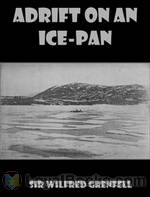 Adrift on an Ice-Pan
Adrift on an Ice-Pan
This autobiographical work describes the author’s harrowing experience caught on a small drifting piece of ice, while crossing a frozen bay by dog team on the Northern Peninsula of Newfoundland. | |
By: Various | |
|---|---|
 Best American Humorous Short Stories
Best American Humorous Short Stories
Eighteen short stories by famous and little known authors compassing the period 1839 - 1914. The editor's very extensive introduction is omitted from this Librivox audio book. | |
By: George Pope Morris (1802-1864) | |
|---|---|
 Will Nobody Marry Me?
Will Nobody Marry Me?
In addition to his publishing and editorial work, Morris was popular as a poet and songwriter; especially well-known was his poem-turned-song "Woodman, Spare that Tree!" His songs in particular were popular enough that Graham's Magazine in Philadelphia promised Morris $50, sight unseen, for any work he wanted to publish in the periodical. | |
By: J. O. Choules | |
|---|---|
 Young Americans Abroad – Vacation in Europe
Young Americans Abroad – Vacation in Europe
It’s 1851 and the Crystal Palace Exhibition is on in England. English American the Reverend Dr. Choules leaves Newport, Rhode Island with three teenaged students – James Robinson, George Vanderbuilt, and Weld French, who are forced to leave the fourth member of their blue-blooded quartet at home – and all four travelers promise to write to “Dear Charley”, Charles Duston, of later fame. The boys meet the Duke of Wellington, travel down the Rhine, and meet many friends along the way. While the letters are filled with some prejudice against the Catholic religion, they are a product of their time – a sometimes ignorant, but often dazzling, period of our history. | |
By: Sir Walter Scott (1771-1832) | |
|---|---|
 The Lady of the Lake
The Lady of the Lake
The scene of the following Poem is laid chiefly in the vicinity of Loch Katrine, in the Western Highlands of Perthshire. The time of Action includes Six Days, and the transactions of each Day occupy a Canto. | |
By: Sir Walter Scott (1771-1832) | |
|---|---|
 Monastery
Monastery
Dame Elspeth is kept in a tower after the death of her husband. The widow of the Baron of Avenel and her daughter seek safety with Elspeth in her tower. Hearing the baroness's deathbed confession, Father Philip notices her Bible. As he carries it to the Lord Abbot, it is taken from him by a White Lady. A sub-prior investigates this story and finds that the Bible is now back in the owner's hands. Later, Elspeth's son sees the White Lady when he snatches the Bible from a flaming altar. Intrigue follows intrigue... | |
By: Jeremy Bentham (1748-1832) | |
|---|---|
 Offences Against One's Self: Paederasty
Offences Against One's Self: Paederasty
Jeremy Bentham (1748-1832) was an English jurist, philosopher, and legal and social reformer. He was a political radical and a leading theorist in Anglo-American philosophy of law. He is best known as an early advocate of utilitarianism and animal rights who influenced the development of liberalism. The essay Offences Against One’s Self (c. 1785), argued for the liberalisation of laws prohibiting homosexuality. The essay remained unpublished during Bentham’s lifetime for fear of offending public morality... | |
 An Introduction to the Principles of Morals and Legislation
An Introduction to the Principles of Morals and Legislation
Jeremy Bentham's Introduction to the Principles of Morals and Legislation, a classic text in modern philosophy and jurisprudence, first published in 1789, focuses on the principle of utility and how this view of morality ties into legislative practices. Bentham's ambition in life was to create a complete Utilitarian code of law. The philosophy of utilitarianism argues that the right act or policy is that which would cause "the greatest good for the greatest number of people", also known as "the greatest happiness principle", or the principle of utility... | |
By: Maria Montessori (1870-1952) | |
|---|---|
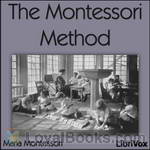 The Montessori Method
The Montessori Method
In the early 1900’s Dr. Maria Montessori began to reform educational methods with her work the ‘Case dei Bambini’ in Rome, Italy. Montessori began her work by developing methods to educate mentally retarded children, the method she developed was used with several children who at age eight took the state examinations in reading and writing, the children passed with above average scores. Because of this success (which is known as the ‘first Montessori Miracle’) Dr. Montessori was asked to open a school for children in Rome which she did... | |
 Dr. Montessori's Own Handbook
Dr. Montessori's Own Handbook
This is the authoritative book written by Montessori to describe her methods. It gives an overview of the Montessori Method as developed for 3 to 6 year olds. It is a short work, intended as a manual for teachers and parents, detailing the materials used as well as her philosophy in developing them. "As a result of the widespread interest that has been taken in my method of child education, certain books have been issued, which may appear to the general reader to be authoritative expositions of the Montessori system... | |
By: John George Nicolay | |
|---|---|
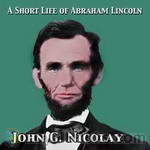 A Short Life of Abraham Lincoln
A Short Life of Abraham Lincoln
John G. Nicolay was Abraham Lincoln’s private White House secretary. With assistant secretary, John Hay, he wrote the two volume definitive biography of Lincoln, “Abraham Lincoln, a Biography.” Although this is a condensation by Nicolay of that biography, it is still a sizable work and a fairly thorough treatment of the life of the 16th president of the United States. | |
By: Alfred North Whitehead (1861-1947) | |
|---|---|
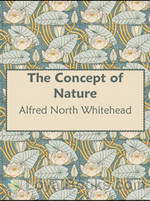 The Concept of Nature
The Concept of Nature
In The Concept of Nature, Alfred North Whitehead discusses the interrelatedness of time, space, and human perception.The idea of objects as ‘occasions of experience’, arguments against body-mind duality and the search for an all-encompassing ‘philosophy of nature’ are examined, with specific reference to contemporary (Einstein, with whose theory of relativity he has some complaints) and ancient (Plato, Aristotle) approaches. | |
By: Charles Mackay (1814-1889) | |
|---|---|
 Memoirs of Extraordinary Popular Delusions and the Madness of Crowds
Memoirs of Extraordinary Popular Delusions and the Madness of Crowds
The book chronicles and vilifies its targets in three parts: “National Delusions”, “Peculiar Follies”, and “Philosophical Delusions”.The subjects of Mackay’s debunking include alchemy, beards (influence of politics and religion on), witch-hunts, crusades and duels. Present day writers on economics, such as Andrew Tobias, laud the three chapters on economic bubbles. | |
 Memoirs of Extraordinary Popular Delusions
Memoirs of Extraordinary Popular Delusions
| |
By: Frances Calderón de la Barca (1804-1882) | |
|---|---|
 Life in Mexico
Life in Mexico
FRANCES CALDERON DE LA BARCA, born in Edinburgh, 1804, the daughter of William Inglis. After her father’s death she settled in America, where she married the Spanish diplomat, Don Angel Calderon de la Barca. She accompanied him on his various appointments to Mexico, Washington, and finally to Madrid, where she was created Marquesa de Calderon de la Barca by Alfonso XII and died in 1882. The present work is the result of observations made during a two years’ residence in Mexico, by a lady, whose position there made her intimately acquainted with its society, and opened to her the best sources of information in regard to whatever could interest an enlightened foreigner... | |
By: John R. Hale | |
|---|---|
 Famous Sea Fights
Famous Sea Fights
I propose to tell in non-technical and popular language the story of some of the most remarkable episodes in the history of sea power. I shall begin with the first sea-fight of which we have a detailed history—the Battle of Salamis (B.C. 480), the victory by which Themistocles the Athenian proved the soundness of his maxim that “he who commands the sea commands all.” I shall end with the last and greatest of naval engagements, the Battle of Tsu-shima, an event that reversed the long experience of victory won by West over East, which began with Salamis more than two thousand years ago... | |
By: Henry Cabot Lodge (1850-1924) | |
|---|---|
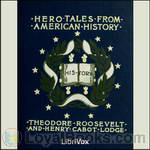 Hero Tales from American History
Hero Tales from American History
Its purpose … is to tell in simple fashion the story of some Americans who showed that they knew how to live and how to die; who proved their truth by their endeavor; and who joined to the stern and manly qualities which are essential to the well-being of a masterful race the virtues of gentleness, of patriotism, and of lofty adherence to an ideal. It is a good thing for all Americans … to remember the men who have given their lives in war and peace to the service of their fellow-countrymen, and to keep in mind the feats of daring and personal prowess done in time past by some of the many champions of the nation in the various crises of her history. | |
 George Washington, Volume I
George Washington, Volume I
| |
 Daniel Webster
Daniel Webster
| |
By: Brontë sisters | |
|---|---|
 Selected Poems by Currer, Ellis and Acton Bell
Selected Poems by Currer, Ellis and Acton Bell
Poems by Currer, Ellis and Acton Bell was a volume of poetry published jointly by the three Bronte sisters, Charlotte, Emily and Anne in 1846, and their first work to ever go in print. To evade contemporary prejudice against female writers, the Bronte sisters adopted androgynous first names. Marked by profound sentiments, gravity and melodious harmony, the poems are strewn on the fields of soulful love, rueful reminiscence and the immortal yearnings of a Christian soul, and represent a fragrant assemblage of noetic flowers from the glebes of olden England... | |
By: Randall Garrett (1927-1987) | |
|---|---|
 The Highest Treason
The Highest Treason
Set in a future in which humanity’s dream of total equality is fully realized and poverty in terms of material wealth has been eliminated, humanity has straight-jacketed itself into the only social system which could make this possible. Class differentiation is entirely horizontal rather than vertical and no matter what one’s chosen field, all advancement is based solely on seniority rather than ability. What is an intelligent and ambitious man to do when enslaved by a culture that forbids him from utilizing his God-given talents? If he’s a military officer in time of war, he might just decide to switch sides... | |
 The Destroyers
The Destroyers
| |
 The Impossibles
The Impossibles
| |